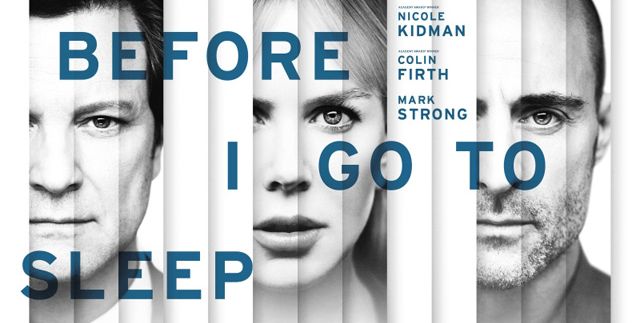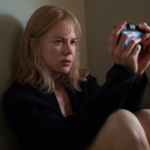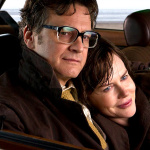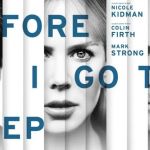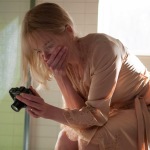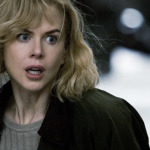The human brain is a truly remarkable organ, and the memory one of its most incredible and least understood features. Sure, there are plenty of observations about its characteristics and behaviours but precisely how it stores, recalls and manipulates memories is a science still in its infancy.
What we can say for certain is that with physical and emotional damage, memory plays some particularly nasty tricks on us. We may retain the capacity for language, for daily living, for driving a car and other outstandingly complex tasks, but forget what we did yesterday, or misremember such that we convince ourselves something is true contrary to objective evidence – a problem faced by courts of law every day, no doubt. That it is a subject of depth, weight and complexity is beyond question – and deserves a movie light on its feet but of no little ingenuity to convey the subtleties.
The very fact that there are gaps in biomedical understanding makes lapses in memory a prime target for movie makers. How many movies can you name in which a character suffers variants on amnesia? Well here’s 43 of them, though it neglects to mention some of the most effective. Trance had a decent bash at wringing twists and turns from memory loss, though my favourites have to be Memento, Spellbound and Vertigo. All four of those are thrillers, you will notice, since the inability to remember key facts until the critical moment is a prime ingredient in any thriller.
Before I Go To Sleep is the latest in the production line, Rowan Joffé‘s contribution to the genre, adapted from the novel of the same name by S J Watson. The real issue he had is that while he is adapting a very successful novel, like the director of a Shakespearian tragedy he could not but keep a wary eye on the works that preceded his effort in the sure knowledge that they will be compared and contrasted, sometimes unfavourably. With that inevitability in mind, it is wise to be innovative and original with the subject matter, to move the subject matter on a notch or two, to make your mark in the genre.
Hollywood bigwigs might well have summarised this movie in their elevator pitch as Memento meets Groundhog Day. Where Memento’s anti-hero Leonard has lost the capacity for retaining memories, Nicole Kidman‘s Christine Lucas cannot create new memories forgets everything each day (technically anterograde amnesia.) She wakes up naked in bed next to her husband, Ben (Colin Firth), knowing nothing about who she is or how she got there, until reminded.
Where Leonard compensates by taking photographs and having tattoos cast on his body; Christine, with the help of neuropsychologist Dr Nash (Mark Strong), videos a daily statement of what she knows and has discovered into her camera, which is then hidden away from Ben and found the following morning when Dr Nash calls to remind her. This triggers the inevitability of her interrogation of her own past, but where Leonard’s interpretations are handled through the brilliant technique of going backwards in 10 minute chunks, Christine unreels the layers as she remembers more in the form of post-traumatic dreams, and in the process becomes increasingly paranoid as she attempts to identify who can be trusted and who is spinning her a yarn (paranoia being a major component of any thriller about memory loss.)
Now with such an excellent cast you would think the results would be amazing. Truth be told, none of the players put a foot wrong, though Kidman’s acting with her face is perhaps not quite up to the standards of the greatest. Granted that it is a difficult role to convey without words the gradual realisation of what is happening without over-acting.
Firth has got the balance of emoting without pitching into melodrama about right, until very near the end thanks to a very un-Firthlike scene which goes well beyond his usual comfort zone. Credit to him for pushing at the boundaries, but it is Strong that impresses me most. There is something of the Pinter about Strong’s noble, intelligent and mobile features, which is undeniably a compliment. His nuanced character retains a degree of aloof ambiguity, where you spot the flaw in Firth’s character a mile off.
However, the problem with the movie is not with the cast but firmly in the hands of the director. The plot is slight and predictable but unlike Firth he does not push at the boundaries or build suspense to anything like the degree required. Hitch would have made twice the movie with this kind of material, where Joffé makes you wonder if there is more coming – and disappointed when there isn’t.
Case in point is the final scene, intended to be the emotional climax and to provoke tears. Not only did it not achieve the goal, but it left me wondering whether there would be one final twist in the tale – the absence of which leaves a crashing anticlimax. It lacked power and depth; the fact that you could see it coming undermined any sense of longing. Maybe the studio insisted on a schmaltzy tearful ending, but it did the movie no favours at all.
Joffé is clearly capable and has attracted an excellent cast, but BIGTS demonstrates one inescapable fact: whatever he is, Hitchcock or Nolan he is not. I came away from his thriller with a sense of deflation, of having been underwhelmed by what should have been a gripping and fulfilling movie. He would be better employed bringing to life a character study than a thriller, not that this is in any way a bad film – just less than the film it might have been.

